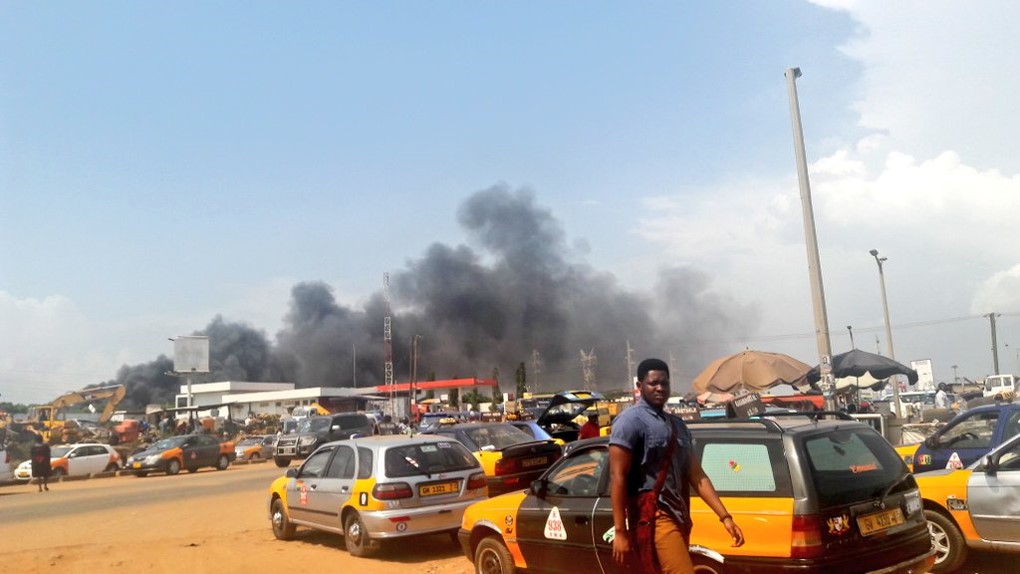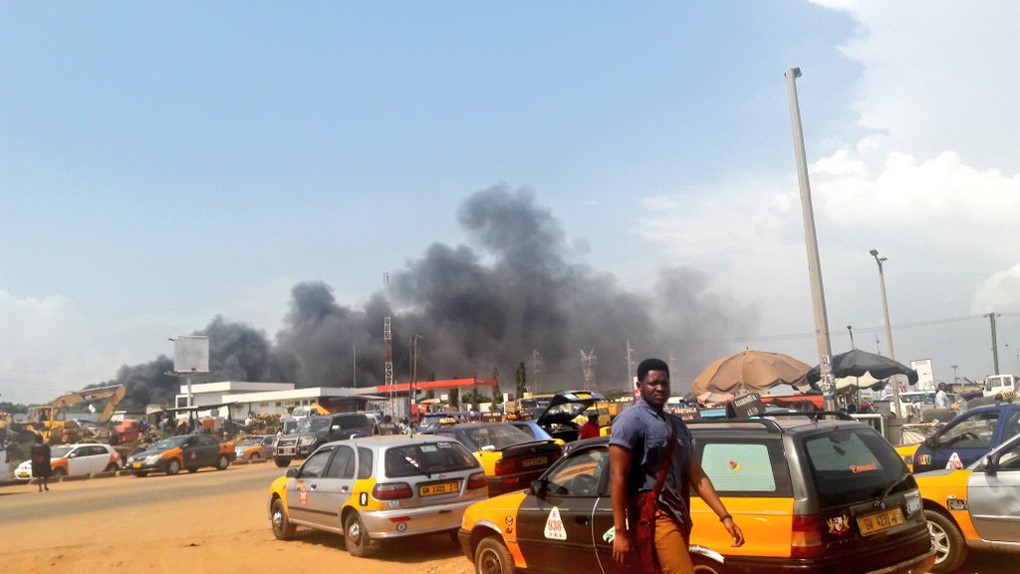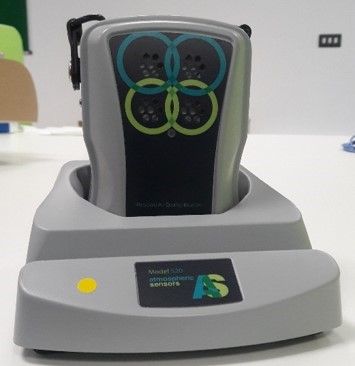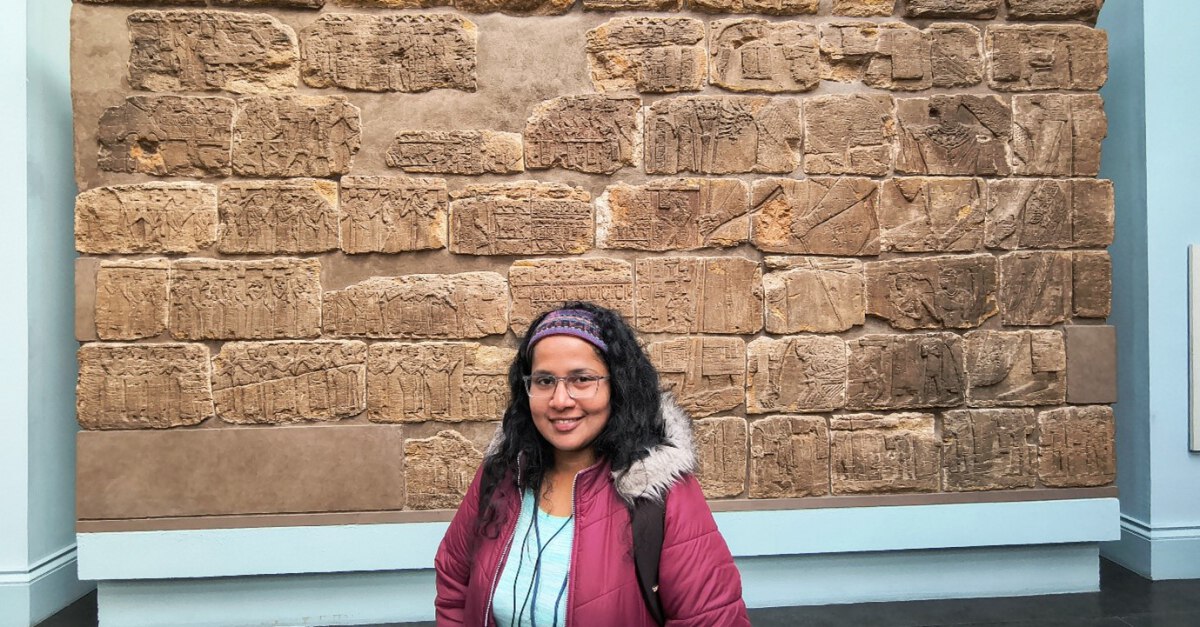Improving air quality monitoring in developing countries for better public health and higher quality of life (Ghana case study)
10/02/2018

According to the World Health Organisation (WHO), 6,500 people die every year in my home country of Ghana as a result of poor air quality. This is a staggering number, especially for a country of less than 27 million people. What’s more, it is rarely featured in the media, and yet malaria, HIV-AIDs and the big six “killer” diseases feature regularly. This, in part, is why I decided to undertake a research degree with Cranfield University.
Air pollution is a major risk factor in human health, and is damaging to our climate, ecosystems and agriculture. In children, it affects cognitive development, harming their future prospects and contributions to society. It is also a large economic burden, as it is linked to an increase in both the number of deaths and morbidity. There is, however, a lack of scientific evidence on sources of air pollution in developing economies, which is a fundamental requirement for the development of environmental policies and guidelines. This is because air quality monitoring is difficult in developing economies for a number of reasons, including mismanagement of resources, lack of governmental support, lack of expertise with current technical know-how, expensive “traditional” air quality monitoring equipment and a lack of adequate regulation and enforcement of laws where they do exist.

Air pollution in Ghana
In the light of this, my research seeks to use cutting-edge, low-cost, high-density network environmental and remote-sensing technologies to develop regionally specific methodologies for air quality monitoring in logistically difficult environments. These sensors, developed by Atmospheric Sensors Limited (ASL) UK, offer us the opportunity to collect air quality data at a faster rate, both accurately and in near-real time (active). The sensors are robust, operate on low-power and are easy to use. And, compared to the “traditional” air quality monitoring sensors, they do not require infrastructure for operation. In addition, the measurements from these sensors are transferred via GPRS and can be accessed anywhere in the world. The inbuilt GPS offers us the opportunity to record the location and time, which can help to develop appropriate models for air quality forecasting that are regionally specific – all really helpful for the scientists and institutions around the world that are supporting countries like Ghana to improve their air quality and, ultimately, people’s lives.
[su_column size=”1/3″]
Mobile air quality sensor
In the short term, my research will determine which air quality monitoring methodologies are the most appropriate to address this problem. It will also help to develop policy that will inform appropriate authorities on the development and implementation of environmental guidelines, and also to regulate the use of this emerging technology for air quality monitoring. In the long-term, I am confident that the quality of life in these regions will be improved as the resources in the environment will be sustainably used to harness growth and development, free from air pollution. And that means improved life prospects for my compatriots, and when the learnings are shared further afield, for all the citizens of the world.
Categories & Tags:
Leave a comment on this post:
You might also like…
From Sri Lanka to Cranfield: How a Commonwealth Scholarship transformed my environmental engineering journey
Hi, I’m Kavithanjali Uthayashangar and I’m here to tell you about my journey into environmental engineering. It began with a simple but powerful motivation: a desire to understand how engineering can ...
Inside the Air Transport Management MSc: Classes, assignments, and group project work
What’s it really like to study Air Transport Management at Cranfield? Adit walks us through a typical day, assignment expectations, and the excitement of hands-on group projects. This is the second of three blog ...
Using Factiva to research a company
If you’re tasked with researching a company, your first port of call might be to search Fame or EBSCO Business Source Complete. Your immediate reaction might not be to look at Factiva. However, for larger ...
How do I write a secondary reference … in the NLM style?
Secondary referencing is used when you’re reading a work which includes a quotation from another author, and you – the researcher – can’t obtain the original source. We always advise, where possible, to try to ...
Reaching new heights: How a Global Excellence Scholarship fuelled my aerospace dreams
Leaving my home in India to pursue an MSc in Aerospace Dynamics at Cranfield University was a leap of faith. Hi, I’m Oliza Kachroo and as an international student, the transition ...
How do I reference…when delivering a presentation?
Just as you cite and reference sources in written work, you should also acknowledge the sources you use or quote in oral presentations. Citing your sources in presentations provides your audience with information about the ...






